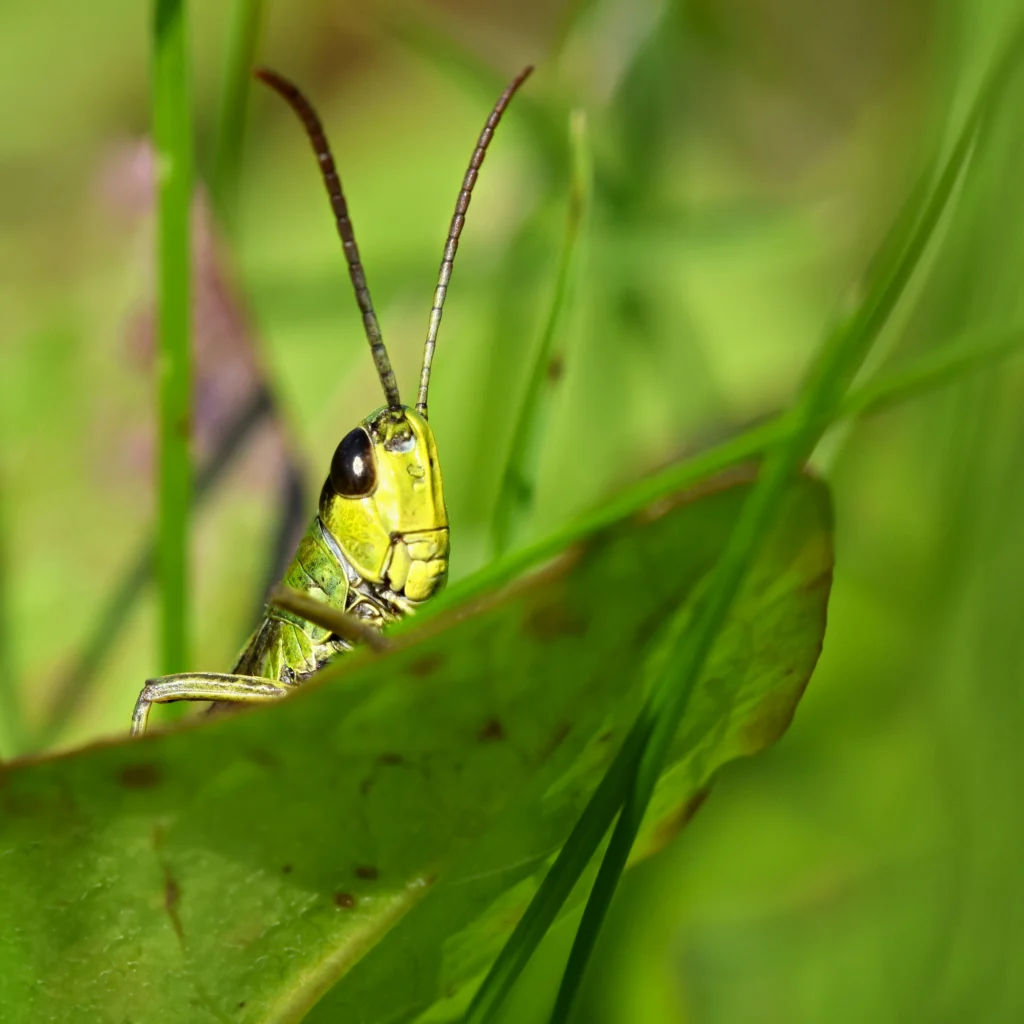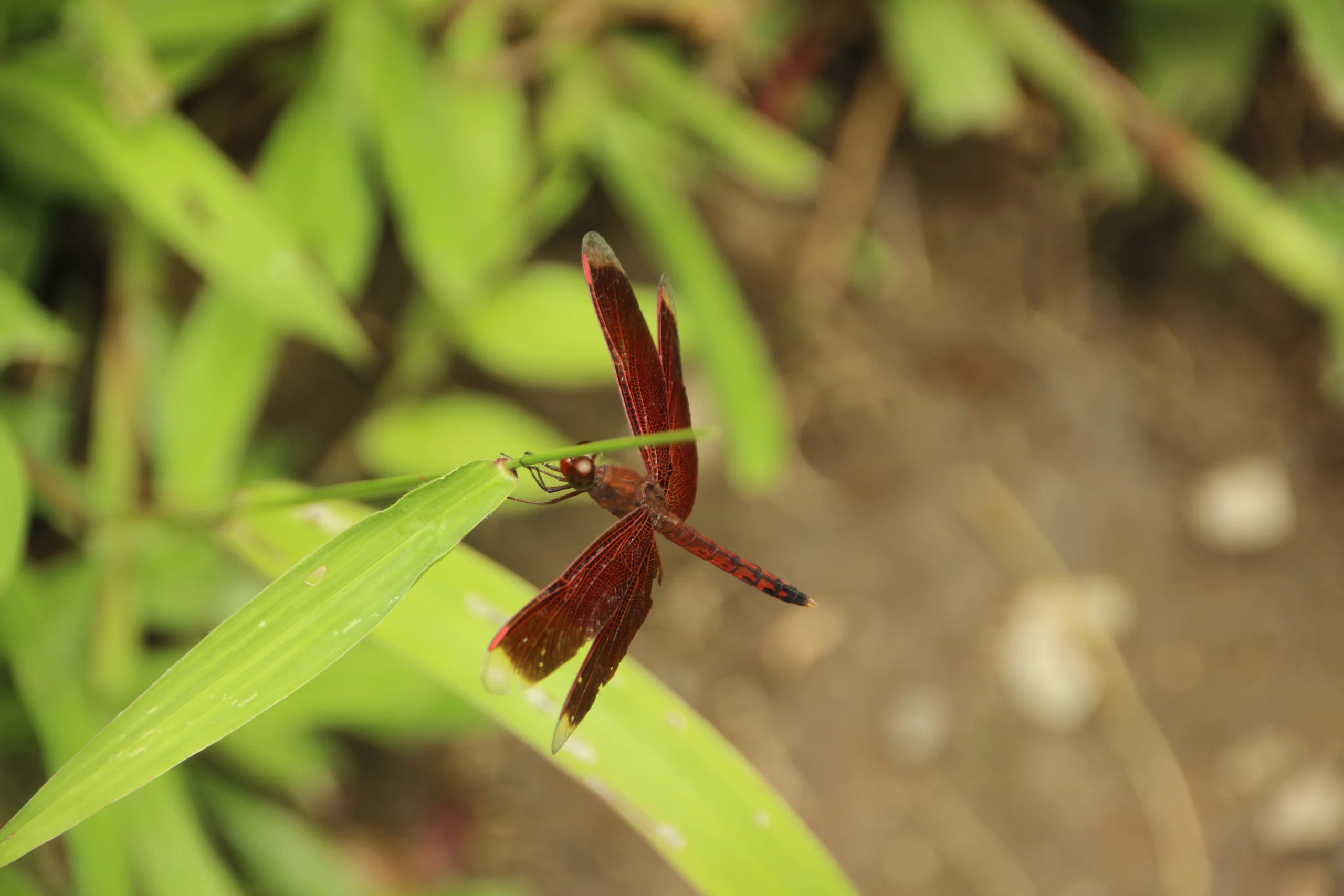Growing lemongrass in your garden brings so much joy—its fresh, citrusy aroma and vibrant green stalks can make any garden feel alive. But like any plant, lemongrass is not immune to pests. Insects love to target lemongrass, feeding on its tender leaves and roots. As a gardener, protecting your lemongrass from garden insects is essential to maintaining its health and vibrancy. In this article, you’ll discover how to identify common pests, prevent infestations, and manage those that do appear, all while keeping your garden safe and flourishing.

Why Lemongrass Attracts Garden Insects
Lemongrass is a hardy plant, but its tender leaves and strong aroma can attract a variety of insects. These pests see your healthy, thriving lemongrass as a perfect place to feed, nest, or reproduce. When insects invade your garden, they can quickly damage your plants and disrupt the balance of your garden ecosystem. The trick is to be vigilant and act early when you notice signs of pests. By learning about the insects that are most likely to affect lemongrass and understanding why they are drawn to it, you can better protect your plants.
Common Pests That Love Lemongrass
While lemongrass attracts a variety of insects, there are some pests that are particularly fond of it. Let’s take a closer look at the most common lemongrass garden insects and how to identify them.
Aphids: Tiny but Powerful Pests
- What They Look Like: Aphids are small, soft-bodied insects that can be green, black, or even red. They often cluster on the undersides of leaves and tender stems.
- What They Do: Aphids feed on the sap of plants, weakening them and causing leaves to yellow, curl, or become deformed. In severe cases, aphids can stunt plant growth.
- How to Identify Them: Aphids are often easy to spot because they leave behind a sticky residue, known as honeydew. This substance can attract ants and cause fungal growth, further damaging your lemongrass.
Grasshoppers: The Chew-Happy Pests
- What They Look Like: Grasshoppers are larger, usually green or brown, with long hind legs and antennae.
- What They Do: Grasshoppers have a voracious appetite and will chew large holes in your lemongrass leaves. If left unchecked, they can strip your plants entirely.
- How to Identify Them: Grasshoppers are often seen hopping around your garden, especially in the warmer months. Their damage is usually quite obvious, with leaves having jagged edges and holes.
Mealybugs: The Soft, Cotton-Like Pests
- What They Look Like: Mealybugs are small, white insects that appear like cotton or fluffy clusters, often found on the undersides of leaves or stems.
- What They Do: Like aphids, mealybugs feed on plant sap, weakening the plant. They also secrete honeydew, which can lead to the growth of mold and mildew.
- How to Identify Them: The waxy coating of mealybugs makes them stand out as small, cotton-like clumps on your plants. You may also notice a sticky residue on leaves and stems.
Whiteflies: The Silent Flyers
- What They Look Like: Whiteflies are small, white flying insects. They tend to stay hidden on the underside of the leaves, only flying off when disturbed.
- What They Do: Whiteflies are sap suckers, and their feeding can cause leaves to yellow and drop prematurely. In large numbers, whiteflies can also stunt the growth of your lemongrass.
- How to Identify Them: Whiteflies are often hard to see until they take flight. When you shake your lemongrass, these tiny white insects will fly up in a cloud, making it clear they are present.
Natural Ways to Manage Lemongrass Garden Insects
Instead of reaching for harsh chemicals, there are many natural methods you can use to protect your lemongrass from pests. By using organic solutions, you can maintain a healthy garden ecosystem while keeping your lemongrass thriving.
Companion Planting: Nature’s Natural Pest Control
Companion planting involves growing certain plants alongside each other to naturally repel pests. By using plants that insects dislike, you can protect your lemongrass without the use of chemicals. Here are a few plants that make great companions for lemongrass:
- Marigolds: These bright flowers are natural pest repellents. Their scent repels aphids, grasshoppers, and mealybugs, helping to protect your lemongrass.
- Basil: Not only will basil boost your garden’s flavor, but it also helps deter pests like aphids and mosquitoes.
- Garlic: Garlic has a pungent odor that insects dislike. Planting garlic near your lemongrass can help keep pests at bay.
Homemade Insecticidal Soap: A Safe and Effective Solution
If you’ve noticed aphids or mealybugs on your lemongrass, consider using a homemade insecticidal soap. This simple, eco-friendly solution works wonders to control soft-bodied pests without harming your plants.
How to Make It:
- Mix 1 tablespoon of castile soap with 1 quart of water.
- Pour the solution into a spray bottle and apply directly to the affected areas.
- Reapply every few days or after rainfall.
This mixture will kill pests on contact and can be used safely on lemongrass without damaging it.
Neem Oil: An Organic Powerhouse
Neem oil is another excellent natural pesticide that works wonders against a wide range of insects, including aphids, grasshoppers, and whiteflies. Derived from the neem tree, neem oil works by disrupting the pest’s feeding and reproductive cycles.
How to Apply Neem Oil:
- Mix 2 tablespoons of neem oil with 1 gallon of water.
- Spray the solution onto your lemongrass, focusing on the undersides of the leaves where pests are likely to hide.
- Apply every 7–10 days until the pests are under control.
Neem oil is a safe, non-toxic alternative to chemical pesticides, making it ideal for gardeners who want to protect their plants and the environment.
Prevention and Maintenance: Keeping Your Lemongrass Safe from Insects
Prevention is always better than cure, especially when it comes to insect infestations. By practicing good garden maintenance and monitoring your plants regularly, you can keep your lemongrass safe from pests all season long.
Healthy Soil Equals Healthy Plants
One of the best ways to prevent insect problems is to ensure your lemongrass is healthy. Plants that are stressed or weakened are more likely to attract pests. The foundation of a healthy plant starts with the soil.
- Improve Soil Quality: Add organic compost to enrich the soil and improve its drainage. Well-drained, nutrient-rich soil helps plants grow strong and resistant to pests.
- Mulch: Apply a layer of mulch around your lemongrass to help retain moisture, suppress weeds, and regulate soil temperature. Mulch can also prevent insects from nesting in the soil around your plants.
Watering Properly
Watering your lemongrass correctly is vital to keeping pests at bay. Both overwatering and underwatering can stress your plants, making them more susceptible to insect attacks.
- Deep Watering: Water your lemongrass deeply, but allow the soil to dry out slightly between waterings. This helps the roots grow deep and strong, while discouraging insects like fungus gnats.
- Avoid Overwatering: Standing water creates a perfect environment for pests like mosquitoes and mealybugs. Make sure your garden has good drainage to prevent waterlogged soil.
Regular Inspection
The best defense against pests is early detection. Inspect your lemongrass regularly for any signs of pests or damage. By catching an infestation early, you can treat the problem before it gets out of hand.
- Look for Discoloration: Yellowing or curling leaves are a common sign of aphids or mealybugs.
- Check for Holes: Grasshoppers and other chewing insects will leave large holes in the leaves.
- Sticky Residue: If you notice sticky spots on your lemongrass, it’s likely due to aphids or whiteflies.
FAQ: Your Questions About Lemongrass Garden Insects Answered
Q: How can I prevent pests from attacking my lemongrass?
A: Regularly inspect your plants, use natural pest control methods like neem oil and insecticidal soap, and practice companion planting to keep insects at bay.
Q: Can I use chemical pesticides on lemongrass?
A: While you can use chemical pesticides, they can harm beneficial insects and disrupt the garden ecosystem. Opt for natural methods like neem oil and companion planting for a safer approach.
Q: Are there any insects that benefit my lemongrass garden?
A: Yes! Beneficial insects like ladybugs, lacewings, and predatory beetles feed on harmful pests like aphids, helping to naturally control the pest population.
Conclusion
Keeping your lemongrass healthy and free from insects doesn’t have to be difficult. By identifying common pests, using natural pest control methods, and maintaining a healthy garden environment, you can protect your plants from harm. Regular inspection and preventative measures go a long way in ensuring your lemongrass remains vibrant and pest-free. So, start incorporating these tips today, and enjoy the benefits of a thriving, insect-free lemongrass garden.

